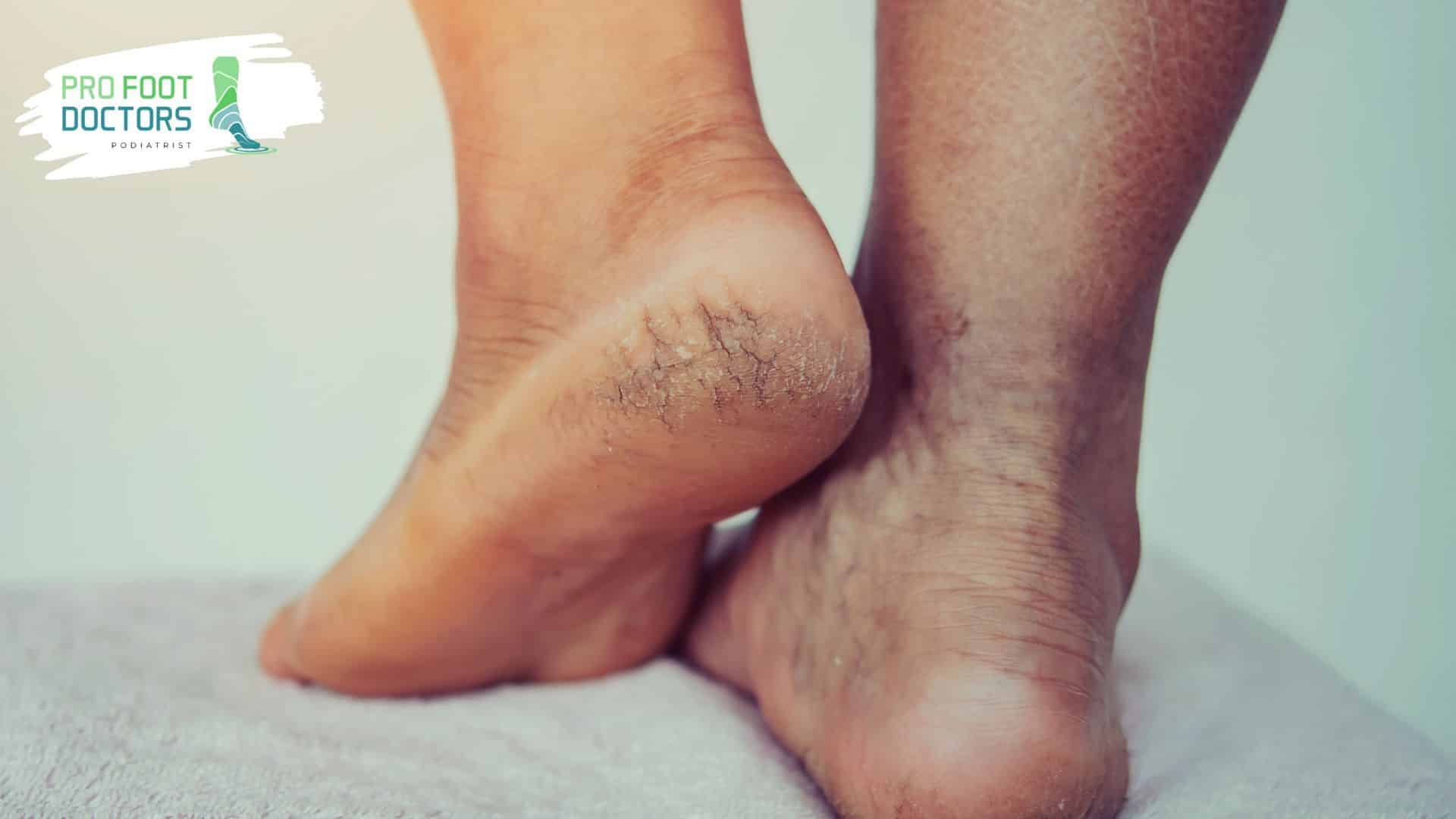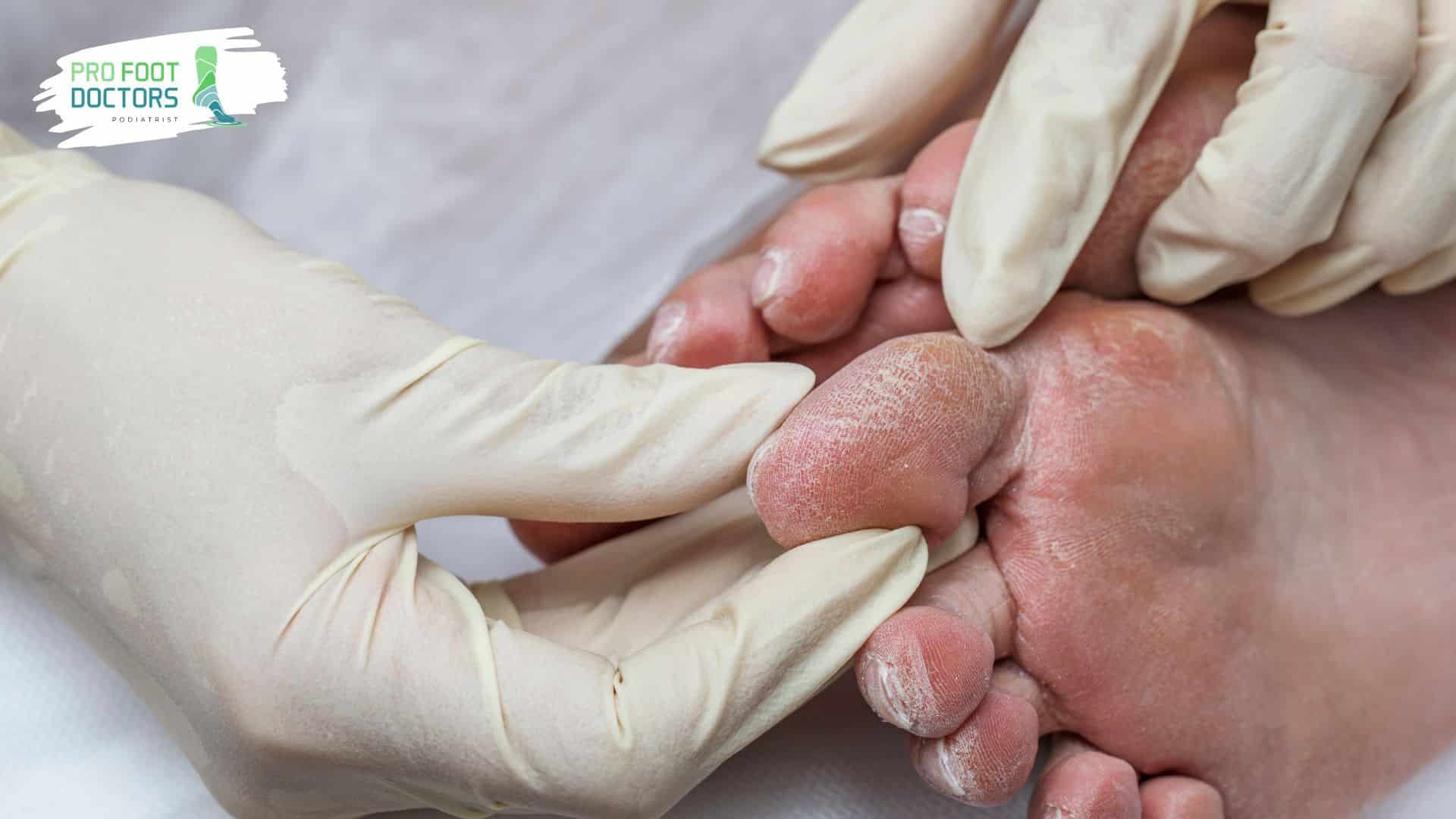Dry skin and cracked feet are regular problems that people with diabetes suffer from. The condition is not only painful but poses the risk of complications.
Diabetic feet are particularly vulnerable and seem to be a critical area on which special attention should be paid in the first place, particularly on the aspect of moisturizing.
Why Do Diabetics Get Dry, Cracked Feet?
Diabetes affects blood flow and nerves. Blood circulation determines the rate at which the skin remains moist and thus, when circulation is poor the skin will dry more often. Neuropathy or damage to the nerves can cause you not to realize that your skin is dry.
Consequently, one may easily have cracks in the feet. Even these small cracks are potential openings through which bacteria can penetrate and result in infections. Diabetics also take time to heal from infections; hence, it is critical to prevent them in the first place.

The Role of Moisturizing
Some of the basic ways that one should try to deal with cracked feet include moisturizing. A good moisturizer moisturizes the facial skin to maintain its elasticity leaving it healthy and smooth. That minimizes the formation of cracks and makes existing ones heal up quickly.
One of the functions of moisturizers is that they prevent water loss and at the same time prevent the skin from coming into contact with anything that may irritate. To diabetics, this barrier is very useful as it protects delicate skin from other complications and infections.
What Type of Moisturizer Should Diabetics Use?
Not all moisturizers are created equal. It is recommended that diabetics use a particular type of product, and that is for sensitive skin. Look for moisturizers that are:
- Non-greasy: Do not use materials that produce slippery residue.
- Fragrance-free: Scents can cause rashes, especially on the sensitive skin.
- Hypoallergenic: These are less likely to cause allergic reactions.
Products such as urea and glycerin are perfect for diabetic skin. They improve the skin’s capacity to retain moisture and correct skin dryness. Some of the commonly used ingredients should be avoided as they harm the skin; these include alcohol and other chemicals that harden the skin further through drying.
When and How to Moisturize?
Proper care tips can help a long way to maintain the skin’s health and should be done every day. Apply lotion on your feet daily, and in the best case, do it after taking a shower when your feet skin is a little wet. This makes the moisturizer penetrate well.
Apply the moisturizer generously but avoid the areas between the toes. The presence of excess moisture there may cause the formation of some fungal diseases. Rub the product smoothly on the skin to increase circulation and the skin’s ability to absorb the lotion.
Benefits of Regular Moisturizing
Skin moisturizing should be done frequently, and this has many advantages when it comes to diabetics.
- Prevents Cracks: Skin that is slippery through moisture cannot crack easily.
- Reduces Pain: Dry skin is skin that feels tight and uncomfortable. It remedies dry skin thus relieving the patient from the agonizing pains.
- Improves Appearance: Soft and well-moisturized feet appear and feel good.
- Protects Against Infections: It prevents necessary organisms such as bacteria from penetrating the skin.
All these benefits are very helpful in preserving the good health of the feet. In diabetics, they also lower the chance of other worse effects.
Preventing Dry Feet Alongside Moisturizing
Moisturizing is just one part of foot care. Here are additional tips to keep your feet healthy:
- Check Your Feet Daily: Look for signs of dryness, cracks, or wounds.
- Wear Proper Footwear: Choose shoes that fit well and support your feet.
- Stay Hydrated: Drink plenty of water to help your skin stay hydrated.
- Use a Humidifier: This adds moisture to the air, preventing dry skin.
Following these steps alongside regular moisturizing ensures comprehensive foot care.

The Risks of Ignoring Dry, Cracked Feet
Failing to provide adequate care to the feet which are dry and have developed cracks, could lead to severe complications, specifically with diabetic patients. These small cracks on the skin can progress over several years to become painful sores or ulcers.
Diabetics experience poor blood flow and compromised immunity and as such these wounds don’t heal properly or at all. These holes also make bacteria penetrate and cause infections in the affected individuals. These infections can easily spread and may cause conditions such as redness, swelling, and formation of abscesses.
It is for this reason that if infections are not treated they tend to worsen hence demanding admission for intensive care. Periodically serious consequences can be observed – sepsis, which can cause tissue necrosis and amputation.
Prevention of these risks and general well-being therefore requires that one is keen on using creams and oils to prevent skin breakdown, and always check with a doctor when there is a growing mole.
A Case for Professional Help
Despite these measures, sometimes plain creams and lotion are not enough to address dry skin on the feet. Thus, there is a necessity to consult a podiatrist when such situations occur.
A podiatrist can help you assess your foot issue and refer you to appropriate treatment plans, for instance, over-the-counter creams or referral to physical therapy or custom-made orthotics.
They can also identify underlying issues contributing to your foot dryness, such as poor circulation, skin conditions like eczema or psoriasis, or ill-fitting shoes that cause friction and exacerbate the problem.
By addressing the root cause, a podiatrist can help prevent further damage and provide long-term solutions tailored to your specific needs, ensuring your feet stay healthy and comfortable.

Why Consult a Podiatrist?
Even with good care, diabetic feet need professional attention. A podiatrist can help manage existing issues and prevent future complications.
At Pro Foot Doctors, we specialize in diabetic foot care. Our team provides personalized solutions to keep your feet healthy and pain-free. Don’t wait for small issues to become big problems. Book your consultation today and give your feet the care they deserve.
Take the first step towards healthier feet. Schedule your appointment with Pro Foot Doctors now. Our experts are here to provide the best care for your diabetic foot needs.


